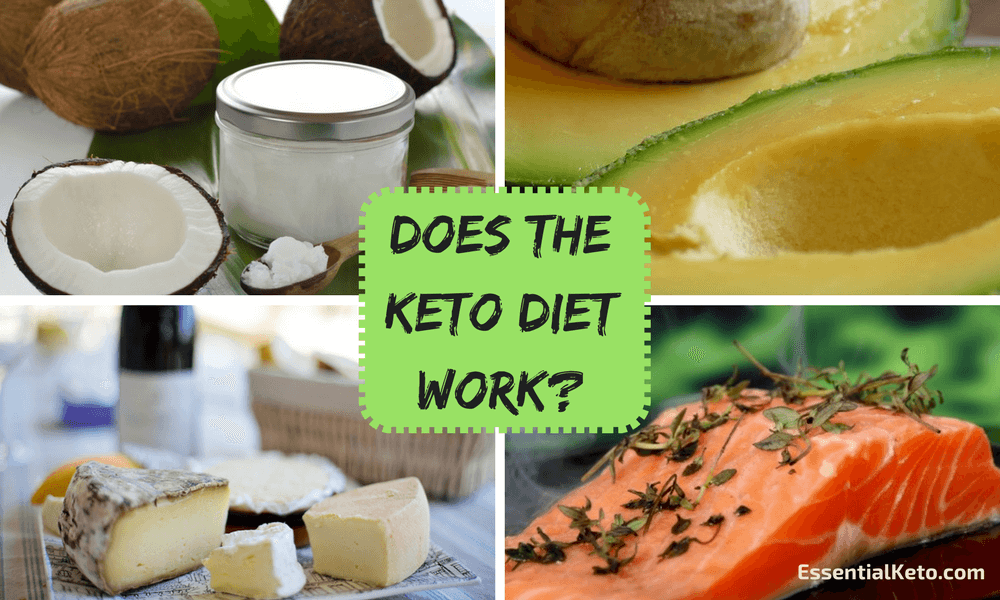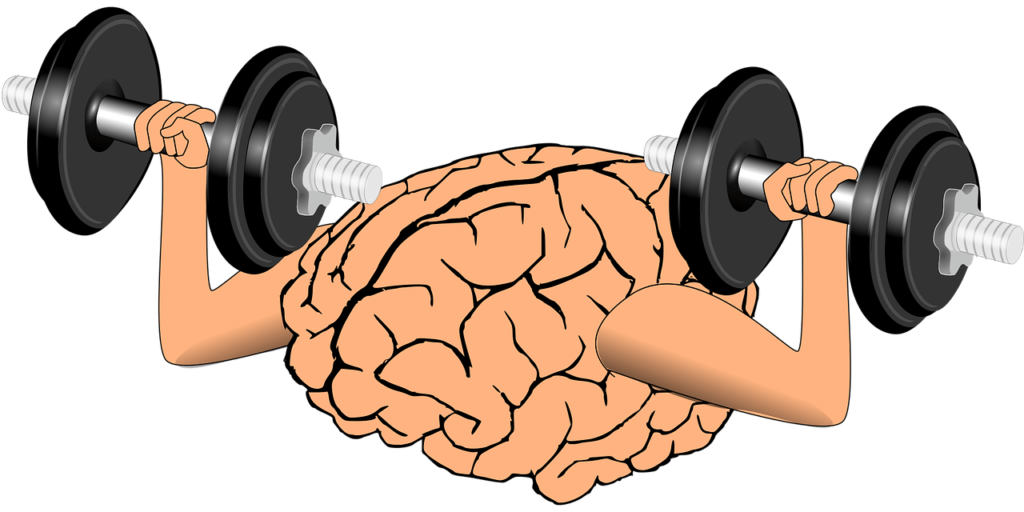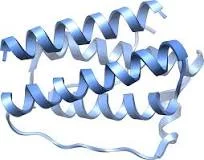Does the Keto Diet Work
Does the Keto diet work? The short answer, in my opinion, is yes it does work.

To consider how and why, we first have to have a look at how we use food as fuel.
We will look at the effect of carbs as fuel for our bodies and the effect of fat as fuel on the operation of our bodies. This will effectively show us the simplicity of why and how the ketogenic diet works.
The most surprising thing about the keto diet for most people is the fact that they are not constantly hungry. We look at what it is about the keto diet that manage and repress hunger.
We will then look at what the science shows to see whether it supports a ketogenic low carb high fat diet or not.
This is a somewhat technical discussion of the processes within our body. If like me, you are interested in this type of detail, then carry on reading.
If however you are not interested in the why, but just want to get into it. Then check out the Keto Diet Rules or our Keto Diet Checklist. Just want to know what you should be eating? Then you want to check out our Keto Shopping List.
Still reading, then enjoy...
Food as Fuel - Fuel Utilization
The main reason to ingest food is for survival and energy.
Yeah I know, most of us may have forgotten this, because now a days we eat for many other reasons – companionship, feeding the hole inside of us and just because we feel like it.
But ultimately the body needs fuel and it has three storage depots to use as fuel:
- Carbohydrates from the food we eat
- Stored body fat and ketones
- Protein that is converted to glucose in the liver and used for energy
The crux to a healthy weight and life is how our bodies utilize our food.
Carbs as Main Fuel Source
We have all been told that our bodies need carbohydrates for fuel and we should preferably fuel our body with small high carb meals five times per day. Three big meals and two snacks.
With the regular standard American diet (SAD), which is really a high carb diet, the main source of fuel for the body is carbohydrates.
Let’s have a look at what happens when the body uses mostly carbohydrates as fuel.
Carbohydrates, specifically sugars and starches are easily broken down into glucose in the bloodstream providing the body with its primary energy source.
At this time, if there are too much glucose in the bloodstream, the hormone insulin steps in to convert it, as too much sugar can lead to a dangerous condition known as glycosylation.
Insulin converts glucose into glycogen. Some glycogen is stored inside the liver as a fuel reserve for the brain. What remains are stored in the muscles as fuel reserves for the body.
When the glycogen stored in the muscles are not used through exercise or daily activities, it stays in the muscles.
The human body’s storage ability to store glycogen is limited. It can only store approximately 1800 calories worth of glycogen. When the reserve becomes full, both the muscles and the liver send a signal and excess glucose from dietary carbs begins to build up in the bloodstream. This result in the release of more insulin to remove it.
Insulin levels surge, and eventually this leads to insulin resistance.
At this point, the liver then sends any excess glucose to be stored as body fat.
Now this is just what we don’t want, but this starts a vicious cycle. 🙁
A VICIOUS CYCLE
High Carb Intake ⇒ High Glucose in the Blood ⇒ High Insulin
=
Body Fat Stores
Eventually this leads to metabolic syndrome, a set of conditions caused by insulin resistance.
These conditions may include a fatty liver, type 2 diabetes, Alzheimer’s disease, heart disease, obesity and other metabolic issues.
This cycle does not occur in all people, but is common in people who are obese, people who are sensitive to carbohydrates and those who do not manage to use up their stored energy.
It may very well be the main culprit behind the obesity epidemic we face today.
Fat as Fuel Source in the Absence of Carbs
It is obvious that people who are overweight or obese have too much fat stores and need to get to a point where they can burn the fat.
So how do we do this?
When there are no carbs available, the body will convert fat into energy and ketones will become the main source of fuel.
We want Lipolysis to occur, as this happens when the body starts burning our own fat stores for energy rather than the carbs we eat every day.
Lipolysis leads to ketosis when the body generates ketones as a by-product of burning fat.
The way to create ketones is therefore to severely limit the intake of carbs thereby forcing the body to use its own fat stores for energy. When carbs are available the body will always use it for energy first. However when none are available and the body start burning fat it is as though the fat is literally melting off the body. This is referred to as ketosis.
So the objective is to lower carbohydrate intake to a point where there is not enough carbs to create glucose and ketones becomes the natural fuel for the body.
X
√
Okay get it. I need ketones as fuel not glucose, but isn't ketosis dangerous?
Ketosis versus Ketoacidosis
No, ketosis and ketoacidosis are often confused. They are however two completely different processes.
- As we have seen now, ketosis is the process whereby body fat is used as fuel for the body. This is a completely normal process.
- Ketoacidosis is a medical condition and only occurs in uncontrolled diabetes.
- Ketoacidosis is dangerous and should be treated immediately. Ketosis, however is perfectly normal, healthy and essential to lose weight and to maintain normal metabolic processes.
But does my brain not need glucose?
Fuel Utilization by the Brain

Even though the brain normally operates on glucose, most parts of the brains will use ketones when they are available.
To understand this better, read this article in Psychology Today.
It is however true that some parts of the brain has to have glucose as energy.
Fortunately this is not a problem in a ketogenic diet as protein will be converted into glucose in the liver through a process called gluconeogenesis when it is absolutely needed.
Conclusion - Change your fuel
To lose weight we should be burning ketones as primary source of energy NOT glucose.
Ketone production only occurs when insulin in the bloodstream is low.
The lower the insulin level, the higher the ketone production and vice versa.
Ketosis can only occur while following a low carbohydrate diet and when the carbs being consumed do not trigger insulin production.
Manage Appetite
When we tend to eat food high in carbs, we tend to often be hungry. So finding a way to manage appetite, is half the battle won against being overweight.
How Does Eating Fewer Carbs Affect Appetite?
One of the biggest complaints on most diets, is the bland food and the constant hunger. How would you feel about a diet that is not leaving you constantly hungry?
The most valuable result of keto must be how it changes appetite. This comes as a major surprise initially. You will find that:
- You are less hungry.
- The uncontrolled cravings for sugar, sweets, bread and potato chips are either gone or hardly there.
- No more need for midnight snacking.
- No need to count calories as you will simply require much less food.
For this reason a Keto program is not focused on counting calories, but rather on eating to satisfaction.
You may be surprized, how much less you need to eat on a keto diet compared to when you eat high levels of carbs.
This may sound too good to be true, but give it a go and experience this for yourself.
Once I realized that I was not always hungry anymore, I really had to change my focus to only eating when I was physically hungry.
Over the years I had created bad habits around food. Now I make sure I don’t eat because I am bored and I work on not eating because I am emotionally distressed.
It however is much easier to eat better when you are not raving hungry or have out of control cravings for sweets, bread and potato chips.
What creates this change?
Leptin and Insulin. Let’s start with leptin…
Leptin
Leptin is the hormone that regulates hunger.

It sends a signal from the brain when you don’t require more food. It therefore registers that food is no longer required.
The metabolic rate is increased and the hunger response is shut off. This ongoing cycle repeats itself over and over.
So as the leptin levels increase and decrease throughout the day, so does the feeling of being hungry.
In between meals the leptin level will decrease signaling the brain that it is time to eat. This is good when the process works normally and it is really time to eat again.
However!
We have a problem when there are lots of leptin stores, but they have trouble crossing the blood brain barrier.
It is crucial for leptin to cross the blood brain barrier, because when it doesn’t, the brain sends the message that you are hungry and needs to eat.
So even if there is plenty of leptin in the blood after eating, the hunger response will not be shut off if leptin can’t cross over.
This is common for people who are obese. Leptin doesn’t reach the brain and therefore they stay hungry as the hunger response cannot be shut down.
This results in over eating, which results in people storing more fat. Now more leptin is made, but it can’t reach the brain.
This creates a vicious never ending cycle. And sadly the obese person is told that they have no self-control or will power. 🙁
What Causes This?
Researches from St. Louis and Japan (Banks A, Coon AB, Robinson SM, Moinuddin A, Shultz JM, Nakaoke R, Morley JE, et all, Triglycerides induce leptin resistance at the blood-brain barrier) found that leptin’s ability to cross the blood brain barrier is interrupted by triglycerides (fats found in the blood stream).
Unfortunately most people who are obese or overweight have high triglyceride levels.
How does this relate to a keto diet?
With keto and low-carb diets triglycerides are substantially reduced. Now, leptin can cross the blood brain barrier and get the message to your brain that you are no longer hungry.
This decrease in triglyceride levels occurs quite quickly once carb consumption is substantially limited. This is one of the core reasons why people following a keto diet are less hungry.
Leptin in the brain also supports fat burning or thermogenesis resulting in an increased metabolic rate.
So, low carb diets lowers triglycerides removing an important barrier for leptin crossing over the blood brain barrier.
This is one of the key explanations for why low-carb diets are overall more successful than low fat diet.
When you are less hungry, you naturally tend to eat less.
On the other hand, low fat diets tend to actually increase triglyceride levels, making the dieter hungrier.
When Leptin works properly
Low Carb Diets reduce triglyceride levels in the body.
Thereby allowing the hunger hormone leptin to reach the brain.
Registering satiety and alleviating hunger.
Thereby allowing a natural reduction in calories.
And effectively regulating the appetite.
Insulin
The second way that reducing carbohydrates controls appetite is through the regulation of insulin.
Carbohydrates stimulate appetite and cause out of control cravings. This is partly as a result of excessive carbohydrates causing blood sugar swings and hiking insulin.
A ketogenic diet has he exact opposite effect, acting as a natural appetite suppressant.
When Insulin works properly
Reducing carb intake regulates blood sugar:
- Resulting in natural appetite suppression.
- Without out of control cravings.
What the Science Shows

The body of evidence supporting a low carb diet is continually growing as more and more studies are done to test the effectiveness of low carb diets.
I list some of the studies here, but it is continually changing and evolving. If you want to know more, check out the links at the bottom of this section.
It is also worth appreciating that there are NO quality studies that shows a carbohydrate rich diet to be beneficial.
Is Carbohydrate an Essential Nutrient
The question by Dr Eric Westman: Is dietary carbohydrate essential for human nutrition? 2002 American Society for Clinical Nutrition.
The answer is that carbohydrates is NOT an essential nutrient, like protein and essential fatty acids.
Unlike protein and essential fatty acids, carbohydrates are not an essential nutrient.
Metabolic Effects of a Very Low Carb Diet
Findings published on the National Institutes of Health website, Metabolic Effects of the Very-Low-Carbohydrate Diets: Misunderstood "Villains" of Human Metabolism, (Manninen et al) states that a very low carb diet triggers ketosis.
This, they state, is a harmless physiological state whereby ketones moves from the liver to tissue where they are required for fuel. When ketones are available in the liver, the body has no need for glucose metabolism.
Amazingly, the paper states that there are “no clear requirements for dietary carbohydrates in human adults”. It further remarks that mild ketosis may very well provide therapeutic benefits in the treatment of a number of diseases.
There are no clear requirements for dietary carbohydrates in human adults.
Contrary to popular believe, the report highlights that insulin is not required for glucose uptake or utilization.
In conclusion, the study shows that in this group of men with normal body weight, a diet very low in carbohydrates can significantly reduce body fat and increase lean body mass.
Stanford University Study
A study conducted at Stanford University (Christopher Gardner, et al) and funded by the National Center for Complementary and Integrative Health studied 311 overweight or obese pre-menopausal women. The women were randomly assigned one of four diets:
- Atkins™ - Lowest in carbs
- Zone™ - Low in carbs, but higher than Atkins
- LEARN™ - Regular carb and low fat
- Ornish™ - Regular carb and low fat
An interesting observation was that women with high insulin levels struggle to maintain a low fat diet. This may be one of the reasons why a low carb high fat diet is more successful.
Women with high insulin levels struggle to maintain a low fat diet. Could this be why a high fat diet is more successful?
The final results after twelve months showed that the women on Atkins, the lowest of the carb diets lost the most weight. They lost an average of 10 pounds over the year and also improved their metabolic profile.
Glycemic Load Study
There has been much debate about the efficacy of diets that prefer foods with a low glycemic index or low glycemic load.
From a systemic review of 37 low GI and low GL studies (Barclay AW, Petocz P, McMillan-Price J, et al. Glycemic index, glycemic load, and chronic disease risk–a meta-analysis of observational studies) it was concluded that a diet focused on low GI foods is associated with lower triglycerides and higher good HDL cholesterol lipid profiles.
Analysis of Weight Loss Dietary Therapy
In this evaluation of 17 randomized controlled trials of 1797 overweight or obese people, the effects of diet therapy on weight loss (Sackner-Bernstein, Kanter and Kaul published in October of 2015) was studied.
This evaluation showed that the people who followed a low carbohydrate diet lost more weight than the groupings who followed a low fat diet.
The following are the parameters used by the study group:
- The low carbohydrate diet was based on the consumption of less than 120 grams of carbs per day.
- The low fat diet was centered on a diet where calories consumed from fat was limited to less than 30% of total calories consumed.
According to, Dr. Sackner-Bernstein, the results shows that low carbohydrate diets have a 99% probability of more weight loss compared to low fat diets.
Even in studies where carbohydrates are restricted, but not nearly as much as a ketogenic diet, health improvements are better than that of a low fat diet.
Saturated Fatty Acids and the Risk of Heart Disease
This study is interesting because it does not support the long term position that we should follow a high carb and low fat diet.
In fact, if you can find a quality study showing that high carb is better than higher fat, please share it with us.
This study shows that replacing saturated fat with sugars and refined carbohydrates does not reduce the risk for cardiovascular disease. It could even increase the risks of dyslipidemia.
Replacing saturated fat with sugars and refined carbohydrates does not reduce the risk for cardiovascular disease.
The researchers go as far as suggesting that given the endemic levels of insulin resistance prevalent in type 2 diabetes and pre-diabetes patients, limiting the intake of sugar and refined carbohydrates in conjunction with healthy weight management should be the number 1 dietary goal for most people.
More Resources
Search any of the well regarded nutritional journals and you will find study after study supporting low carb diets.
As summaries, I found these two resources especially helpful.
- Formerly Authority Nutrition now Healthline - It lists 23 studies supporting a low carb lifestyle.
- The Diet Doctor - Need more science then this is your resource. Check it out here.
The Diet Doctor comes to the conclusion that according to all high-quality studies people on average lose more weight on low carbohydrates.
This is the case even when they are not counting calories or trying to restrict food intake.
Conclusion
I hope this answers your question - Does the Keto Diet Work? What is next? Have more questions, then check out our Most Frequently Asked Questions here.
Or if you want to get started, then check out the resources we shared at the beginning of this guide.
